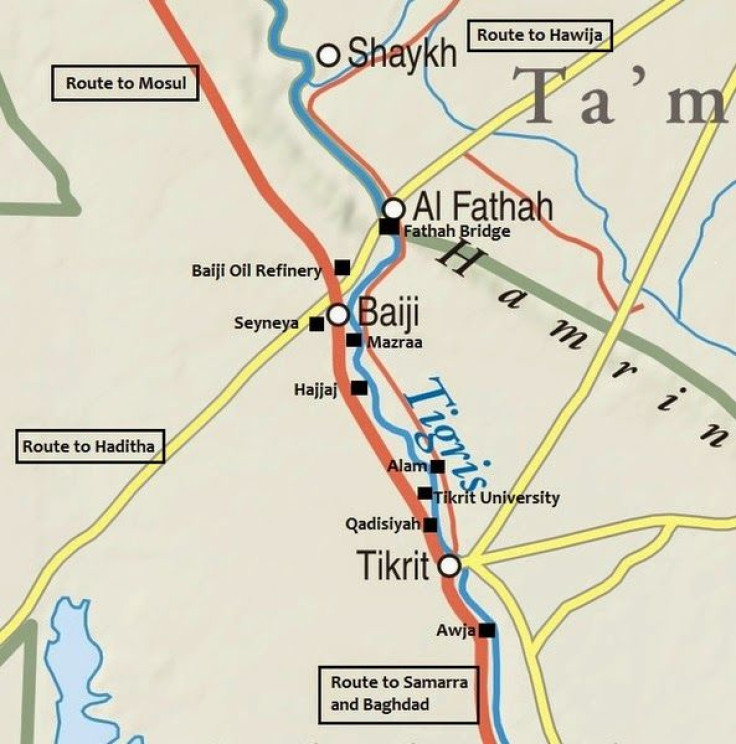ISIS In Danger Of Losing Key Iraqi City

Five months after capturing Baiji, the Islamic State group is now at risk of losing its grip on the strategic city as Iraqi Security Forces close in. If the ISF succeeds in retaking the city, it will be the first time the ISF has regained a central metropolitan region from the terrorist group since it took Baiji, according to an update from the Institute for the Study of War on Thursday.
Baiji is situated north of Baghdad and is vital to both the ISF and the Islamic State, or ISIS, for a number of reasons. Iraq’s largest oil refinery is located northwest of Baiji and is the country’s main fuel supply for domestic consumption. Once the Baiji refinery fell to ISIS, it was shut down and oil prices around the world surged as a result. Furthermore, an Iraqi highway connecting northern Mosul to southern Tikrit runs through Baiji. The city of Mosul fell to ISIS on June 10 -- two days before Baiji -- and it is the group’s largest political stronghold in Iraq and the second largest amid Iraq and Syria. Control over the Mosul-Tikrit highway has provided a spine for ISIS forces in Iraq. Moreover, Baiji serves as a junction that links ISIS routes in Iraq across the border to Syria. Losing Baiji would create a cavity in the ISIS territory -- denying access to central Iraqi routes and isolating their spread of troops, according to the Institute for the Study of War.
Should ISF ground troops seize Baiji, the Iraqi government can restart the refinery and resume communication between previously disconnected areas. The move would also present a prime opportunity for the ISF to take advantage of the city’s strategic location -- creating conditions for an eventual attack on the ISIS stronghold in Mosul, the Institute for the Study of War concluded.
© Copyright IBTimes 2024. All rights reserved.











